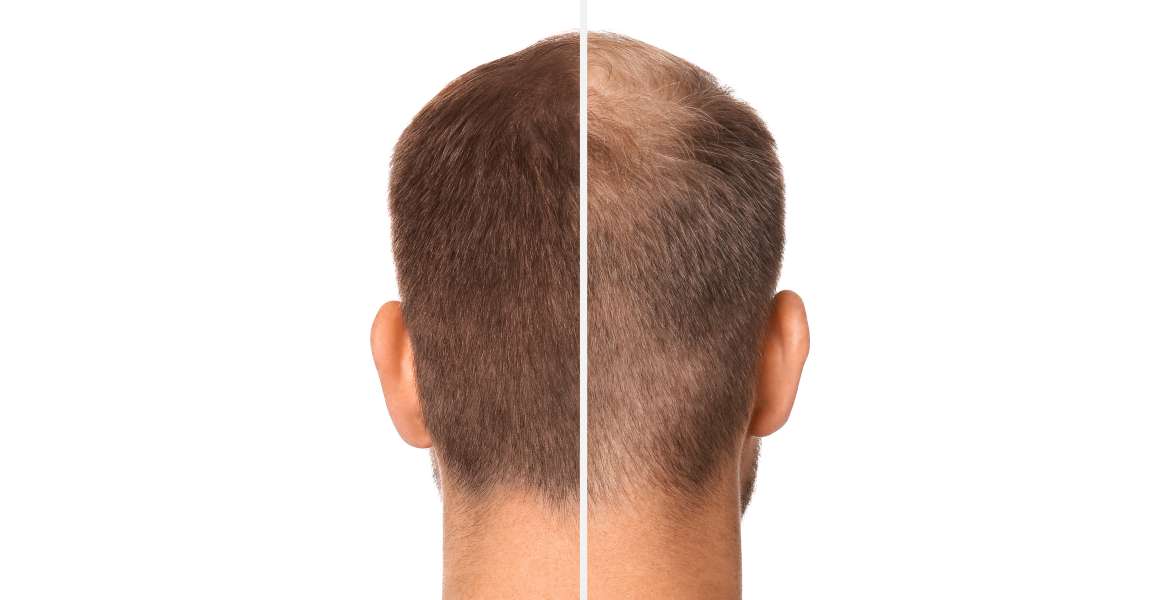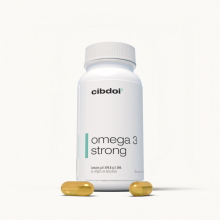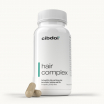Does Omega-3 Help Hair Growth?
Last updated:
Published:
Having lush, healthy hair can make you feel confident and beautiful. But many suffer from lackluster locks and thinning hair as they age. If you want to optimize hair growth and thickness, omega-3 fatty acids may help. Omega-3s nourish hair follicles, reduce inflammation, and balance hormones – all beneficial for your mane. But what does the science actually say? Let’s examine the evidence on omega-3s for better hair.
Contents:
Understanding Hair Loss
Before analyzing omega-3s, it’s helpful to understand what causes hair loss and thinning. Major factors include:
- Genetics – Androgenetic alopecia and other conditions.
- Hormonal changes – Estrogen decline, thyroid dysfunction.
- Nutrient deficiencies – Iron, zinc, protein, biotin.
- High stress levels – Cortisol imbalance impairs follicles.
- Inflammation – Scalp inflammation damages follicles.
- Medications – Drug side effects.
- Harsh hair treatments – Relaxers, dyes, bleaching damage hair.
- Age – Follicles shrink and generate thinner hair over time.

Omega-3s likely can’t fully overcome genetics or conditions like alopecia. But optimizing intake may help counteract other factors by reducing inflammation, balancing hormones, and supplying key nutrients.
Why Omega-3s for Hair Health?
Omega-3s are essential fatty acids that provide several benefits related to hair growth:
Reduce Scalp Inflammation
Omega-3s lower common inflammatory markers. This helps decrease scalp inflammation that can inhibit follicle health.
Improve Hormone Balance
Omega-3s support hormone regulation. Estrogen and thyroid hormone imbalance contribute to thin hair.
Increase Blood Flow
Omega-3s boost circulation to the scalp. This delivers more oxygen and nutrients to follicles.
Provide Building Blocks
Omega-3s supply elements needed to construct hair proteins and fatty acids present in natural sebum.
Through these mechanisms, upping omega-3 intake may support creating strong, robust hair strands and counteract loss. But what does the research show?
The Evidence on Omega-3s and Hair
A small but growing body of research has examined the effects of omega-3s on hair health with some promising results:
- A study in women with hair loss found omega-3 supplements increased hair density, thickness, and reduced shedding versus placebo.
- Clinical trials show omega-3s improve hair growth in women with alopecia areata. Benefits peaked around 6 months.
- Mice fed diets high in omega-3s exhibited increased hair re-growth and follicle proliferation versus low omega-3 diets.
- Multiple studies link omega-3 deficiency with increased risk of alopecia and abnormal hair loss.
- Some research finds those with alopecia have lower omega-3 blood levels compared to healthy controls.
While not definitive, the current evidence suggests optimizing omega-3 intake may support achieving stronger, fuller hair especially when experiencing thinning.
Omega-3 Dosage for Hair Growth
No official recommendations exist for using omega-3s specifically for hair health. But looking at effective doses from studies provides some guidance:
- The most hair growth benefits were seen at combined EPA/DHA doses of around 2000-3000 mg daily.
- Lower doses under 1000 mg daily are likely still helpful for general health but may not provide noticeable hair effects.
- Look for a supplement with an EPA to DHA ratio of at least 2:1, which is ideal for reducing inflammation.
- Give supplementation at least 3-6 months for optimum hair results.
Of course, discuss your dosage needs with your healthcare provider. But evidence suggests 2000-3000 mg daily of EPA/DHA offers the most robust support for healthy hair.
Food Sources vs. Supplements
You can obtain omega-3s from both foods and supplements. Each has pros and cons for improving hair health:
Food Sources
Foods highest in omega-3s include:
- Fatty fish like salmon, mackerel, sardines
- Chia seeds and flaxseeds
- Walnuts
- Fortified eggs and yogurt
However, the high doses linked to hair benefits would require large amounts of fish and seeds daily. Supplements offer a more convenient option.
Omega-3 Supplements
Look for concentrated fish, krill, or algae oil supplements. Key features:
- High EPA/DHA levels - at least 500 mg per capsule
- Purity tested with minimal contaminants
- Reputable brand
- Fresh - store away from heat and light
With nutritional supplementation, therapeutic omega-3 intake for luscious locks is more easily achievable.
Lifestyle Tips for Healthy Hair
While omega-3s play a role, a multifaceted approach works best for strong, vibrant hair:
- Eat a balanced diet high in proteins, vitamins, minerals
- Treat hair gently - avoid tight hairstyles, limit heat styling
- Manage stress through yoga, meditation, massage
- Optimize sleep quality and get 7-9 hours nightly
- Scalp massage improves circulation
- Stay hydrated and drink plenty of water
When paired with overall healthy habits, omega-3 supplementation may help provide the building blocks for your best hair yet.
Does Omega-3 Help Hair Growth? Conclusion
In summary, emerging research suggests increasing omega-3 fatty acid intake may support healthier, fuller hair growth. Omega-3s like EPA and DHA can help counteract common causes of hair thinning such as inflammation, hormonal shifts, nutrient deficiencies, and stress. Clinical studies find high dose omega-3 supplementation increases hair density and growth, especially helpful for those experiencing loss. Foods like fatty fish contain omega-3s, but supplements offer a convenient way to obtain therapeutic doses for hair. To maximize results, omega-3 intake works best as part of a multifaceted approach also focusing on diet, scalp care, stress relief, and lifestyle optimization. While not a hair loss cure-all, optimizing your omega-3 levels is one promising strategy to nourish your scalp and locks from the inside out.
Points
- Omega-3s may promote hair growth by reducing inflammation, balancing hormones, increasing scalp circulation, and providing key nutrients.
- Multiple studies demonstrate improved hair density, thickness, and growth with daily high-dose omega-3 supplementation, especially helpful for hair loss.
- For hair benefits, aim for ~2000-3000 mg combined EPA/DHA omega-3s daily according to research.
- Concentrated omega-3 supplements offer a convenient way to get high therapeutic dosages compared to food sources alone.
- Give omega-3s at least 3-6 months consistently for optimum hair results.
- Omega-3s work best paired with overall healthy lifestyle and scalp care habits.
- Increasing omega-3 intake appears to be one promising natural approach to supporting healthy, vibrant hair.
















